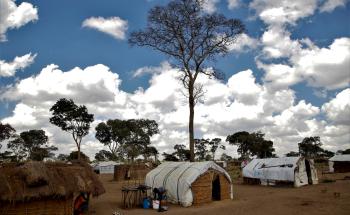
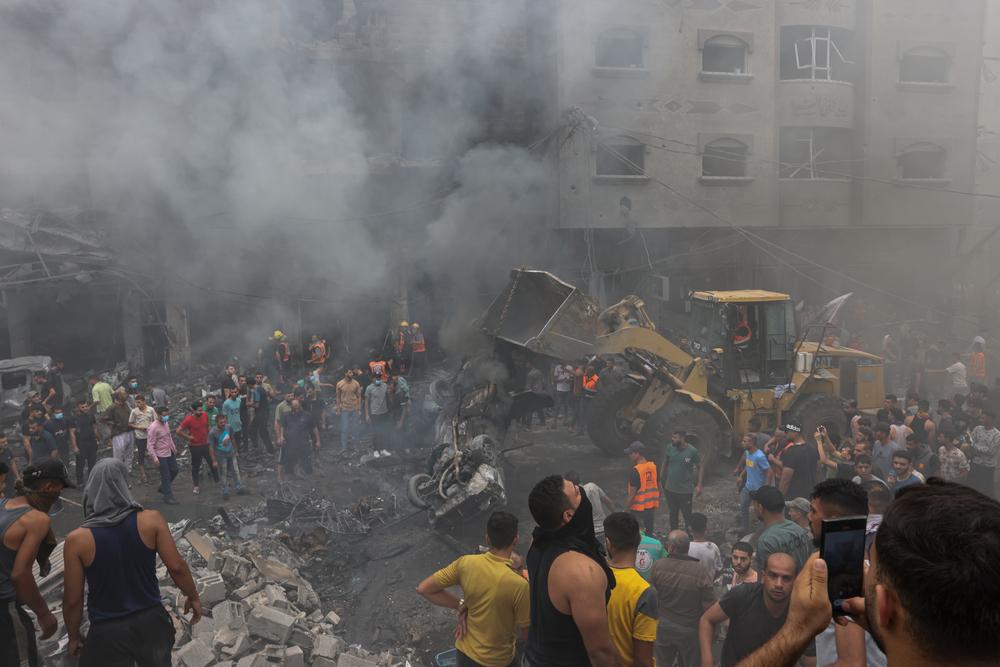
Israel-Palestine Conflict
Our response to the Israel-Palestine crisis
Decades of repression and conflict, and an Israel-imposed blockade on the Gaza Strip, Palestine, from 2007, exploded on 7 October 2023 as Hamas attacked Israel on a large scale. In response, Israel has launched massive attacks on Gaza. The conflict has resulted in thousands of deaths.
In Gaza, hospitals and other health facilities have been damaged. It is often too dangerous for people to seek medical care.
Israel is now imposing a siege on Gaza, with no electricity, food, water or medical items available for the Strip’s residents.
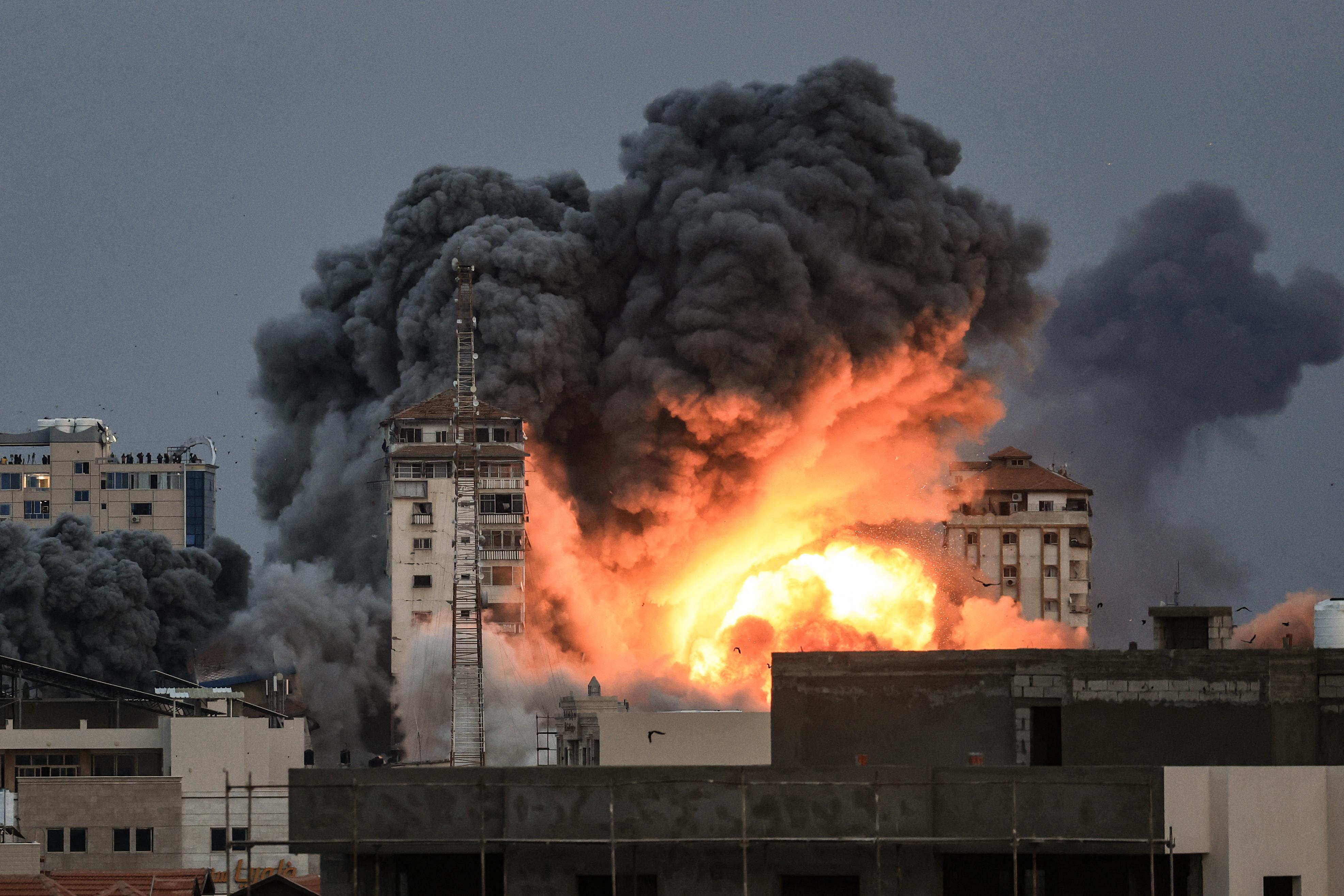
THE CURRENT SITUATION
What our teams are seeing and experiencing
The situation there is ‘horrific’ and ‘catastrophic’. Hospitals and clinics – the ones that are running – are overwhelmed and are barely functioning, running out of electricity and medical supplies. Surgeons in Al-Shifa hospital are now operating without painkillers. As a surgeon myself, this is unimaginable.
Hospitals receive evacuation orders – often with just a couple of hours’ notice – with tough decisions to make. Patients – including those in critical condition – risk their lives either by moving, or by staying behind, in both cases perhaps to die without treatment.
The bombing right now in Gaza is relentless. People have been killed while forced to move, looking for safety. This includes family members of our colleagues. People are trapped, unable to escape, with absolutely nowhere safe to go. They’re deprived of essential needs – water, food, protected shelter, medicines. People are drinking salty water.
MSF does not currently run medical programs in Israel. This is because we focus on filling the greatest gaps in health care, and Israel has strong emergency and health systems. MSF has offered its support to Israeli hospitals treating large numbers of casualties following attacks by Hamas militants on October 7.
The situation in Gaza has been described by our teams as ‘catastrophic’. The health system has collapsed. Most of Gaza’s hospitals are out of service, as the electrical power and water have been cut off due to a lack of fuel and due to the damage from strikes. Those that are running are continuously under attack, as are ambulances. Patients and medical staff are being injured and killed.
There are very little medical supplies. Surgeons in Al-Shifa Hospital have been operating without anaesthetics or painkillers. Contact with our staff is sporadic; we frequently lose contact with them. We have not been able to contact our staff in Al-Shifa Hospital since 16 November.
The repeated calls by the Israeli forces to evacuate the entirety of the northern Gaza Strip is outrageous; it is a policy of forcible transfer of civilians and patients to make the north of Gaza a free-fire zone. These evacuation orders to hospitals are a death sentence for the gravely sick and injured and implies that medical workers should leave their patients behind. Civilians who remain in the North are still civilians and must be protected as such.
The bombing of Gaza is relentless. One of our colleagues, Mohammed Al Ahel, a laboratory technician, was killed on 6 November when the area near his house was bombed. Two of our staff, Dr Mahmoud Abu Nujaila and Dr Ahmad Al Sahar, and a third doctor, Dr Ziad Al-Tatari, were killed in a strike on Al-Awda Hospital on 21 November. As Israel orders Gazans to flee south, it simultaneously continues its campaign of bombardments in the south, leaving people with no safe place to go.
A state of siege has been imposed by the Israeli government on all of Gaza, including the withholding of food, water, fuel and electricity. More than 1 million people have had to flee to the south, where they’re crammed into a small area. The displaced are sleeping in rough conditions, with dangerously little levels of food and water; people have been drinking salty water. There is no electricity, and hygiene conditions are extremely poor; some shelters have one toilet for every 600 people. These conditions drastically increase the likelihood of disease outbreaks.
While most of our Palestinian colleagues have moved to the south of the Strip, a handful of our doctors and nurses have chosen to remain in northern Gaza. They continue to offer their support to the wounded, including in some MSF-supported facilities and in collaboration with local healthcare staff. We have colleagues providing care in Al-Awda, Al Nasser and Al-Aqsa hospitals. We also have staff in the European, Rafah Indonesian, and Emirati Maternity Hospital and one general healthcare facility, the Al-Shaboura Clinic. Most of our teams are in the Middle Area and South of Gaza, while just a few of our colleagues are left in northern Gaza, in Al Awda Hospital. Our teams provide surgical support, wound care, physiotherapy, outpatient consultations and mental health services.
On 14 November, a new MSF team of 15 people – composed of surgeons, anaesthetists and intensive care specialists, with some coordination and logistical support – entered southern Gaza via the Rafah crossing from Egypt. People in the team come from different countries from all over the world.
In Khan Younis, in Al Nasser Hospital, where MSF provides emergency care and surgical treatment, including to patients with traumatic injuries and severe burn injuries, our activities have been adjusting continuously to the security conditions. As of 27 December, a number of MSF Palestinian staff continue to work in the hospital, while the presence of the international staff has been suspended since 26 December.
Since 6 December, we have been supporting the European Hospital with a small surgical capacity. We are now slightly increasing our support by reinforcing the surgical team and providing wound dressing as well.
In the Middle Area, in Al-Aqsa Hospital, our international and Palestinian staff provide wound dressings and outpatient consultations for patients with blast injuries and burns and also support the operating room with surgical capacity.
We were forced to stop our support to Martyrs and Beni Suhaila clinics, where we had been providing general healthcare, wound dressing and mental health consultations, after the Israeli forces ordered people to evacuate the areas on 1 December.
Nearly half of the consultations we were doing in the clinics were for children under the age of five. Our teams were caring for patients who were now left with infected wounds, some of which had worms inside upon arrival.
On 9 December, our team in Rafah reopened the Al-Shaboura clinic, which had been closed since the beginning of the war. We treated over 130 patients on the first day.
We are also supporting local health authorities where we can with donations of medical supplies. We have donated over 50 tonnes of medication and medical supplies to several clinics and health posts.
Recently, we started supporting the Al-Emirati maternity hospital with medical supplies and staff including gynaecologists, nurses and hygienists working around –the –clock.. Our teams have also supported the clean-up of the maternity ward and provided medical and hygiene supplies.
Between 7 October and 21 December, 286 healthcare workers were killed in the Gaza Strip. Fifty-seven ambulances were hit and damaged, according to the WHO.
Our teams started to support the outpatient department at Rafah Indonesian Hospital with wound dressing, physiotherapy, and other small procedures to relieve the patient load from Nasser, European and Al-Najaar hospitals.
Our teams are also supporting 20 water distribution points, all near informal camps of displaced people. In total, the teams are providing 80.000 litres per day, but we are still struggling to provide enough per person.
Israeli armed forces have announced the West Bank as a closed area. Most checkpoints across the West Bank remain closed, exacerbating movement restrictions on people and affecting their ability to access basic services, including food, and medical care.
In West Bank towns, people are experiencing an explosion of violence against them. Jenin has been particularly hard hit, with bombings and incursions by Israeli forces in the refugee camp killing and wounding dozens of people.
In Jenin, our teams report treating patients who showed signs of being tied up and beaten, reportedly by Israeli forces.
Our medical teams at Jenin Hospital have witnessed Israeli forces shooting at the hospital itself, while they’ve also treated medical staff who were shot by soldiers while still in an ambulance. Israeli forces also prevent the ability of ambulances to move around, blocking entrances to the refugee camp.
In Hebron, families have been displaced after violence from Israeli settlers and forces, including having their homes burnt down. Patients in Hebron's old city, known as H2, are facing challenging access to our mobile clinic when it’s there, due to extreme restrictions on movements.
These attacks on medical care MUST stop.
In the West Bank, we maintain activities focused on emergency care, and mental health care in Hebron, Nablus and Jenin.
Hebron: Our mobile clinics in the areas of Masafer Yatta are currently suspended. Our team has prepared medical kits with medications to be distributed to around 40 MSF patients suffering from chronic diseases.
Our medical team has performed phone assessments among Palestinian residents and displaced people, referring those in need of medical, mental health or social services. Mental health services continue to be offered to affected people and communities, mostly remotely.
We have donated medical equipment and kits to Alia Hospital, community focal points in Beit Omar, Al-Rshaydeh, and the emergency care centre in Um El-Khair.
Nablus: Psychological first-aid group sessions are being conducted in three districts in Nablus, Tubas, and Qalqiliyeh.
Jenin: Our teams work at Jenin Hospital, providing emergency and trauma care to the people injured following the almost daily bombing and incursions by Israeli forces, especially at the Jenin refugee camp.
We have donated a tuk-tuk, to allow local paramedics to transport injured patients to hospital, given Israeli forces often block the entrance to the refugee camp and do not allow ambulances to pass. We have also donated drugs and equipment to seven clinics, to prepare for emergency births in the event pregnant women will not be able to reach the hospital.
More than 400 Gazans who had permits to work in Israel are now being held across five detention centres in Jenin. We are providing mental health support to those who have suffered a mental breakdown after learning of the fate of their families in Gaza. We also provide medication for patients with chronic diseases in the detention centres and transport to health centres.
We donated first aid kits to volunteer paramedics in Nur Shams and Jenin refugee camps.
We have teams in Egypt, ready to send medical supplies into Gaza. On 29 October, we sent 26 tonnes of medical supplies – which can cover the needs for 800 surgeries – on a WHO plane to Egypt, under the coordination of the Egyptian Red Crescent, destined for healthcare facilities in Gaza. Upon the cargo’s arrival in Egypt, we have been able to send part of it into Gaza, but sending medical supplies remains difficult due to Israeli restrictions at the Rafah crossing.
We are in contact with the Egyptian authorities and the relevant organisations in Egypt to start activities in Egypt to provide healthcare for injured or sick Palestinian people allowed to exit Gaza, if needed.
- An immediate and unconditional ceasefire that will spare the lives of Gazans and restore the flow of humanitarian aid.
- A lifting of the siege to allow increased and continuous humanitarian supplies to cross into Gaza.
- Protection for civilians and healthcare personnel and facilities on both sides, at all times; hospitals and ambulances are not targets.
- Basic guarantees of safety to enable our teams to move to provide humanitarian and medical services.
- Access to people in need of medical care and humanitarian aid, including the sick and wounded.
- People to be afforded safe access to essential supplies like food and water and health facilities.
- Increased essential humanitarian supplies like medicine, medical equipment, food, fuel and water must be allowed to enter the Gaza enclave.
- Those who wish to leave must be able to do so safely without prejudicing their future option to come back.
- In the West Bank, for Israeli authorities to put an end to the violence and forced displacements of Palestinians.
- Israeli authorities must stop implementing restrictive measures in the West Bank that impede the ability of Palestinians to access basic services, including medical care.

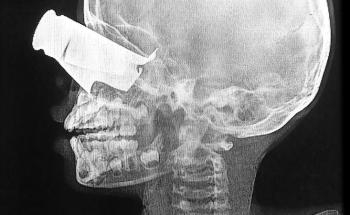
Sudan: MSF treats 167 people for drone injuries in two weeks after strikes hit civilian areas
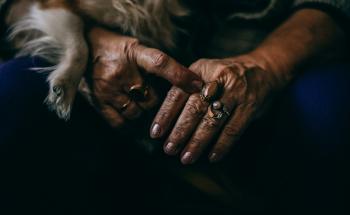
What’s Left After the Flames: Four Years of Full-Scale War in Ukraine
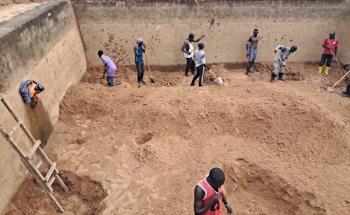
South Kivu: MSF responds to the worst cholera epidemic in Sangé in five years
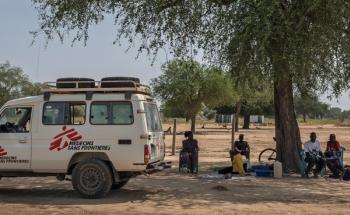
Forgotten between borders
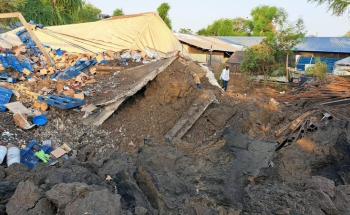
South Sudan: Government forces bombarded MSF hospital in Lankien, Jonglei state
Updates from Social Media
Since the war in Gaza began, MSF medical teams and patients have been forced to evacuate 9 different healthcare facilities & 5 MSF colleagues have been killed.
MSF Secretary-General called on the @UN Security Council to demand an immediate and sustained #ceasefire in #Gaza.
📹 pic.twitter.com/57AheoPM6J— Doctors Without Borders (MSF) Southern Africa (@MSF_southafrica) February 23, 2024
Today, after 52 years, MSF is briefing the @UN Security Council, a rare occurrence. We'll shed light on the dire situation in the Occupied Palestinian Territory, particularly the ongoing crisis in #Gaza over the past 139 days. Watch it here: https://t.co/LejBTIO92M
— Doctors Without Borders (MSF) Southern Africa (@MSF_southafrica) February 22, 2024
🚨Late on the evening of February 20, Israeli forces conducted a military operation in Al-Mawasi, during which an Israeli tank fired on a house housing MSF colleagues and their families, killing two MSF staff family members and injuring six others. #Gaza https://t.co/ReDJ70eqvU pic.twitter.com/Fv22yWC8z7
— Doctors Without Borders (MSF) Southern Africa (@MSF_southafrica) February 22, 2024
🚨According to the @UN, about 130 patients remain in #NasserHospital, Khan Younis, #Gaza. We are deeply concerned for the well-being of these patients and call for their safe evacuation. https://t.co/w6xEEW85VE pic.twitter.com/MZkJbEs4KG
— Doctors Without Borders (MSF) Southern Africa (@MSF_southafrica) February 20, 2024
“Hospitals should be considered as safe places and shouldn’t even be evacuated in the first place,” said Lisa Macheiner, MSF Project Coordinator in #Gaza.https://t.co/GTzL36bxbq
— Doctors Without Borders (MSF) Southern Africa (@MSF_southafrica) February 16, 2024
After 4 months of war, Israel's unrelenting, indiscriminate strikes on #Gaza 🇵🇸 have destroyed buildings and infrastructure. The destruction of water infrastructure and the displacement of people has left people without access to safe water for drinking & personal hygiene. pic.twitter.com/kWvQjJcPGH
— Doctors Without Borders (MSF) Southern Africa (@MSF_southafrica) February 12, 2024
On January 22, Aurélie Godard, MSF Medical activity manager in Gaza🇵🇸, visited #AlShifaHospital as part of a supply convoy organized by the @UN.
In her testimony, she talks about the desperation faced by Palestinians in #Gaza due to a lack of essential services. 📹 pic.twitter.com/N9CS7e233C— Doctors Without Borders (MSF) Southern Africa (@MSF_southafrica) February 2, 2024
Displaced women living in adverse conditions are giving birth in plastic tents and public buildings in #Gaza.
Those who manage to deliver in a hospital often return to their impromptu shelters mere hours after undergoing a Caesarean section.
Watch 📹 pic.twitter.com/eSsHNofd8I— Doctors Without Borders (MSF) Southern Africa (@MSF_southafrica) January 30, 2024
The recent ruling of the #InternationalCourtofJustice that the situation in Gaza requires provisional measures to prevent genocidal acts is a significant step and furthers the need for an immediate and sustained ceasefire. https://t.co/DLzUJrM66u pic.twitter.com/MYjMnpQKVd
— Doctors Without Borders (MSF) Southern Africa (@MSF_southafrica) January 27, 2024
"Some of my most trying moments in Gaza were during the 20 to 25 surgeries I performed each day. I had very young patients who were the sole surviving members of their family and arrived at the hospital alone," says Dr Aldo Rodriguez, MSF Surgeon in #Gaza 🇵🇸.
Watch 📹 pic.twitter.com/D3NjE3oyDx— Doctors Without Borders (MSF) Southern Africa (@MSF_southafrica) January 19, 2024
Following January 8th's shelling of a shelter in Rafah, #Palestine 🇵🇸, the 5-year-old daughter of an MSF staff tragically died the day after she was taken to the nearest hospital for care. Léo Cans, Head of Mission, took us back to the shelter & explained what happened.
Watch 📹 pic.twitter.com/n5DM0UECmd— Doctors Without Borders (MSF) Southern Africa (@MSF_southafrica) January 12, 2024
🔴Gaza: This morning, a shell broke through the wall of an MSF shelter housing over 100 staff and their families in Khan Yunis. 1/3
— Doctors Without Borders (MSF) Southern Africa (@MSF_southafrica) January 8, 2024
After days of artillery fighting in #Gaza's Middle Area and following late morning evacuation order flyers dropped by Israeli forces for neighborhoods around #AlAqsa hospital where MSF works, MSF took the difficult decision to evacuate staff and their families from the area. 1/6
— Doctors Without Borders (MSF) Southern Africa (@MSF_southafrica) January 7, 2024
“We did what we could. Remember us.” These are the words our Dr Mahmoud Abu Nujaila, who has since been killed in a hospital strike. When the guns fall silent and the true scale of devastation is revealed, will world leaders be able to say the same?" #Gaza #Palestine pic.twitter.com/chm18wFPLW
— Doctors Without Borders (MSF) Southern Africa (@MSF_southafrica) December 22, 2023
After four weeks in #Gaza 🇵🇸, MSF Logistics Coordinator Ricardo Martinez expresses shame over the inaction of powerful entities capable of ending the war.
Read more: https://t.co/v95xl7PzwT
📹 pic.twitter.com/q1JkiK1Din— Doctors Without Borders (MSF) Southern Africa (@MSF_southafrica) December 18, 2023
On 8 December 2023, the @USAGov blocked a @UN Security Council's resolution to a ceasefire in #Gaza🇵🇸.
"By vetoing this resolution, the US stands alone in casting its vote against humanity," says Avril Benoît, MSF Executive Director in the US.
Read more: https://t.co/landVsjrBQ pic.twitter.com/hKYYJXegWT— Doctors Without Borders (MSF) Southern Africa (@MSF_southafrica) December 11, 2023
#Gaza: Fuel and medical supplies have reached critically low levels at Al-Aqsa Hospital in the Middle Area of the Strip due to road closure, while hundreds of patients need emergency care due to the unrelenting Israeli bombardment.
— Doctors Without Borders (MSF) Southern Africa (@MSF_southafrica) December 6, 2023
How many more people must die in Gaza?
How many more hospitals will be targeted?
ENOUGH IS ENOUGH‼
Stand with us in our call for an immediate #Ceasefire in #Gaza.
Share this video, raise your voice and help us stop this brutal war.#HumanityFirst pic.twitter.com/R1gKTfe698— Doctors Without Borders (MSF) Southern Africa (@MSF_southafrica) December 4, 2023
📢You’ve seen their faces and heard their calls. The message remains the same.
Immediate, sustained ceasefire in the #Gaza Strip, assaults on hospitals & medical staff must stop, siege and restrictions on aid must stop now.
It must all stop now‼️ pic.twitter.com/EhES6CZJCk— Doctors Without Borders (MSF) Southern Africa (@MSF_southafrica) December 4, 2023
"There are severe cases, and all the injuries include burns. Can you imagine receiving 100 or 200 patients a day, sometimes 500?"
Dr Hafer Abukhussa, plastic and reconstructive surgeon in Nasser Hospital, #Gaza🇵🇸, speaks about the challenges patients and medical staff face.
📹 pic.twitter.com/2gAREC5yfm— Doctors Without Borders (MSF) Southern Africa (@MSF_southafrica) November 28, 2023
🔴Latest #Gaza update
We are saddened by the deaths of two MSF doctors, Dr Mahmoud Abu Nujaila & Dr Ahmad Al Sahar, as well as a third Ministry of Health doctor, Dr Ziad Al-Tatari, as a result of a strike at Al Awda Hospital, one of the last functional hospitals in Northern Gaza. pic.twitter.com/TFKlax5nL2— Doctors Without Borders (MSF) Southern Africa (@MSF_southafrica) November 21, 2023
On 18 November 2023, an MSF staff’s relative died, and another one was injured in an attack on an MSF convoy trying to evacuate 137 people - MSF Palestinian staff members and their families. We condemn, in the strongest terms, this deliberate attack. https://t.co/p3v7LaxFtd
— Doctors Without Borders (MSF) Southern Africa (@MSF_southafrica) November 19, 2023
🚨 Latest update from #Gaza_War
This morning, bullets were fired into one of three MSF premises located near #AlShifa hospital and sheltering MSF staff and their families – over 100 people, including 65 children, who ran out of food since yesterday night.— Doctors Without Borders (MSF) Southern Africa (@MSF_southafrica) November 14, 2023
v
🚨Update from this morning in #Gaza
"We don’t have electricity. There’s no water in the hospital. There’s no food. People will die in a few hours without functioning ventilators." - MSF Staff member still in #AlShifa Hospital in Gaza City. pic.twitter.com/me2z7ewYK4— Doctors Without Borders (MSF) Southern Africa (@MSF_southafrica) November 13, 2023
🚨Gaza Update
In the past 24 hours, hospitals have been under relentless bombardment. Al-Shifa Hospital has been hit multiple times. Our teams & patients are still inside.
Again, we urgently call to STOP ATTACKS on hospitals & for an immediate CEASEFIRE. https://t.co/NYAysnOknK pic.twitter.com/ZA9T8bbwdg— Doctors Without Borders (MSF) Southern Africa (@MSF_southafrica) November 11, 2023
“Since this morning, many MSF medical staff have stopped working in supported hospitals in #Gaza city because they are either attacked or at risk of being attacked at any time. People are afraid to go to the hospitals” - Dr Mohammad Abu Mughaiseb, MSF Deputy Medical Coordinator.
— Doctors Without Borders (MSF) Southern Africa (@MSF_southafrica) November 10, 2023
Today, we are mourning the loss of one of our team members in #Gaza, Mohammed Al Ahel, who was killed along with several members of his family on 6 November. pic.twitter.com/FbJf1a1KQa
— Doctors Without Borders (MSF) Southern Africa (@MSF_southafrica) November 8, 2023
"There is no safe place here and the situation is extremely difficult: no safety, no bread, no water, and no electricity since the beginning of the war up until now. God help us in this difficult time." - Loay Harb, MSF Nurse in Gaza 🇵🇸 pic.twitter.com/jVoWVElgoz
— Doctors Without Borders (MSF) Southern Africa (@MSF_southafrica) November 3, 2023
On 30 October, an MSF-supported Turkish-Palestinian Friendship hospital was reportedly hit by a projectile, causing serious damage to the third floor of the building. Fortunately, no patients were harmed as they were taking shelter on the ground floor at the time.
— Doctors Without Borders (MSF) Southern Africa (@MSF_southafrica) November 2, 2023
We call for an immediate ceasefire to prevent more deaths in Gaza and allow desperately needed humanitarian supplies in. Millions of people are facing an inhuman siege, a collective punishment that is prohibited under international humanitarian law. https://t.co/FlneFi5MM8 pic.twitter.com/eWnMTuSx0m
— Doctors Without Borders (MSF) Southern Africa (@MSF_southafrica) October 31, 2023
On 29/10, MSF airlifted medical supplies via @WHO to aid #Gaza's emergency medical response, in collaboration with the Egyptian Red Crescent. This crucial support can cover 800 surgeries for Gaza's healthcare facilities, strained by recent events. We urge an immediate #ceasefire. pic.twitter.com/vq8TuyWq0U
— Doctors Without Borders (MSF) Southern Africa (@MSF_southafrica) October 29, 2023
We call for an immediate #ceasefire to prevent more deaths in #Gaza and allow desperately needed humanitarian supplies in.
— Doctors Without Borders (MSF) Southern Africa (@MSF_southafrica) October 28, 2023
Violence in the West Bank is rising following the latest war in #Gaza. At least 105 Palestinians, including 31 children, have been killed in the West Bank since 7 Oct. 96 attacks on healthcare have been documented.
Civilians and healthcare facilities should always be protected. pic.twitter.com/5OzsiIiyFz— Doctors Without Borders (MSF) Southern Africa (@MSF_southafrica) October 27, 2023
"We amputate him in front of his mother and his sister because there is no space, and the sister is waiting to be operated on next. You cannot imagine this." - Dr Obeid, MSF Surgeon.
Five ways this war in #Gaza is impacting Palestinians' health: https://t.co/6eRoAgAd1D
📽 pic.twitter.com/68PP0W3gVI— Doctors Without Borders (MSF) Southern Africa (@MSF_southafrica) October 24, 2023
"Mass killing of civilians is sickening and must be condemned in all possible terms. Horrific violence has been wreaked over the last 10 days." - Dr Christos Christou, MSF International President.
Read more: https://t.co/nkPh5TvZjd
📹 pic.twitter.com/p11taCq2Hi— Doctors Without Borders (MSF) Southern Africa (@MSF_southafrica) October 18, 2023
We are horrified by the recent bombing of Ahli Arab Hospital in #Gaza Gaza City, which was treating patients and hosting displaced Gazans.
Hundreds of people have reportedly been killed.
This is a massacre.
It is absolutely unacceptable.— Doctors Without Borders (MSF) Southern Africa (@MSF_southafrica) October 17, 2023
MSF doctor Ghassan Abu-Sitta’s voice message to @IamArwaDamon after reaching Gaza’s Shifa hospital, where “thousands have flocked to and are sleeping on the grounds, between patient beds in the wards.” What he describes is horrific. “People are too afraid to bury their dead.” pic.twitter.com/DDfpgXwarT
— Doctors Without Borders (MSF) Southern Africa (@MSF_southafrica) October 15, 2023
"Medical facilities must be respected. This is not something that should have to be negotiated." - Léo Cans, MSF head of mission in Palestine.
In this testimony, Léo provides a clear picture of what is happening in Gaza.
Read more: https://t.co/xfhnMpYHOE
📹 pic.twitter.com/RteAe9nl16— Doctors Without Borders (MSF) Southern Africa (@MSF_southafrica) October 13, 2023
🚨The 24-hour notice that people in Northern #Gaza must leave their land, homes and hospitals is outrageous! We are talking about more than a million human beings. We condemn Israel’s demand in the strongest possible terms. https://t.co/Dl8N1w41lD pic.twitter.com/mfBFWiwXaZ
— Doctors Without Borders (MSF) Southern Africa (@MSF_southafrica) October 13, 2023
Doctors Without Borders (MSF) is horrified by the brutal mass killing of civilians perpetrated by Hamas and by the massive attacks on Gaza, #Palestine, now being pursued by Israel.https://t.co/Dl8N1w41lD pic.twitter.com/N4Aa9cBT2u
— Doctors Without Borders (MSF) Southern Africa (@MSF_southafrica) October 13, 2023
🚨Audio sent to us from #Gaza: “[Air]strikes are just continuing in Gaza city.”
“The situation is horrific, with massive Israeli and Palestinian casualties. Our Palestinian colleagues are working day and night to cope with the influx of wounded." - MSF Head of Mission in Gaza. pic.twitter.com/nNPHGD111A— Doctors Without Borders (MSF) Southern Africa (@MSF_southafrica) October 10, 2023
🔴 UPDATE FROM GAZA
We are providing surgical and inpatient care while preparing medical donations for hospitals and health facilities in #Gaza.
Hospitals are overcrowded, and there is a shortage of drugs, consumables, and fuel for generators. https://t.co/VLrdfivV9E pic.twitter.com/xtkDuuFXMN— Doctors Without Borders (MSF) Southern Africa (@MSF_southafrica) October 9, 2023